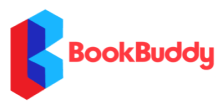The questions you ask at the end of an interview can be just as important as the ones you answered. Ask the right questions and you’ll reinforce the idea of you as a suitable candidate, as well as figure out if the job is a good fit for you. If you don’t have any questions you run the risk of seeming disinterested or unprepared.
Every job interview should be seen as a two-way process. Obviously, the employer wants to learn about you. But an interview is also an opportunity to find out if the job is right for you. This is why it is important to ask questions – based on research – when prompted at the end of the interview.
Avoid questions like: “What’s it like working here?” or “What do you usually do for lunch?” These are too simplistic; you want to come off as better than that. Besides, these questions can be saved for if/when you start the job.
Here are the five questions that will help you stand out as a candidate.
How will my performance be measured?
Variations of this question include: “What will you do to measure my progress?” or “How will my success be measured here?” Any of these are among the best questions to ask.
These questions show that you are thinking about the job and the impact you might make in it. It also demonstrates that you have given some serious consideration about what you will bring to the table and you are keen to do well.
What expectations do you have for someone’s first three months in this role?
This question will help you gain insight into if you think you are a good fit and have what it takes to do the job. There’s no point going through a grueling recruitment and application process for a job you don’t think you’ll be capable of doing.
It also shows you are considering the long-term and looking to what impact your presence can have on the company in the future. This will make you seem more reliable and shine a positive light on your work ethic.
Ask an industry-relevant question.
Do some research beforehand and find out something that has recently affected the industry you are trying to get into, and ask a question about it. There may have been a political event – such as a tariff on a necessary resource – that led to changes in the industry. Ask your interviewer what they think.
Ask about the changes/challenges the industry is facing. This shows that you are forward thinking and you want to help the company get through any obstacles.
How can I impress in my first three months here?
A similar question you can ask: “What are the key attributes someone in this role needs?”
This question highlights your commitment and desire to succeed. It shows you’re thinking how to best help the company. The question also shows that you are a team-oriented worker who wants to make a positive impact.
Your response to the answer is just as important as asking the question in the first place. Be sure to take notes and show the interviewer that you are engaged and genuinely want to know the answer.
What are the next steps? (If this hasn’t been covered already.)
If it hasn’t already been made clear, this is a good opportunity for you to gain some information on what you need to do next in the process.
There may be several steps; use this time to find out more.
General advice
Of course, this can vary depending on the job you are interviewing for, but here is some general advice.
- Be humble. No one likes to hear someone brag incessantly – interviewers are no exception. It’s a hard line to toe, but try to strike the balance between humility and hubris. You want to be confident and enthusiastic, not a show-off or boaster.
- Don’t use hyperbole. Exaggerating your claims can make you look like an amateur. Avoid comments like: “I have the best CV in my class” or “My work is always of the utmost quality.” Not only can this make your interviewer think you’re lying, but it also makes you appear full of yourself.
- Take notes. If you can, take something to write down important points the interviewer mentions about the job. It is especially important to take notes while your questions are being answered. This shows you are engaged with what they are telling you, and you’re not just asking questions for show.
- Bring some ideas to the table. Show the interviewer that you are already thinking about how to improve the company and perform in the role.
- Don’t ask too many questions. It’s important to show that you have given some thought about the role, but you don’t want to make the employer feel as though they are the ones being interviewed.


